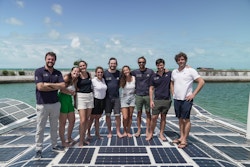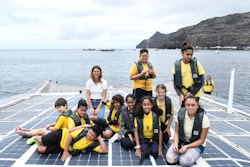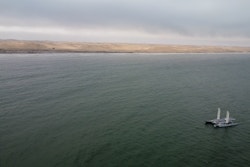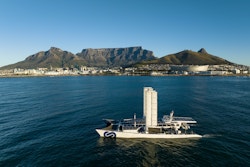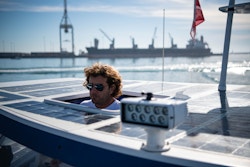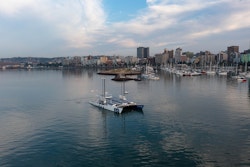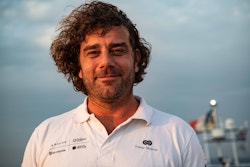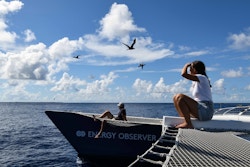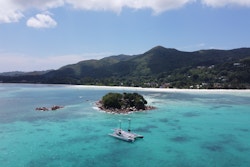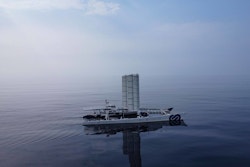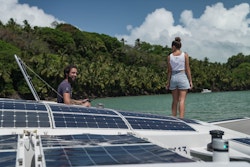
The arrival of our laboratory vessel in Kourou, French Guiana, marks a milestone in our catamaran's world Odyssey!
The arrival of our laboratory vessel in Kourou, French Guiana, marks a milestone in our catamaran's world Odyssey!
Energy Observer's stopover in Fortaleza: the first encounter between our laboratory vessel and the South American continent!
After seven days of sailing from Walvis Bay in Namibia, our laboratory vessel arrived on the mysterious island of Saint Helena.
After 743 nautical miles from Cape Town, South Africa, our laboratory vessel has dropped anchor in Walvis Bay, Namibia, the final stopover of the African chapter of our round-the-world Odyssey.
For the first time since the vessel's launch in 2017, the hydrogen tanks on board Energy Observer were removed from their casings for an inspection of the entire high-pressure circuit. This operation kept the team on its toes for over 3 days in Cape Town, South Africa.
Energy Observer's 80th round-the-world stopover is officially underway! Our vessel and crew arrived in Cape Town in bright sunshine after rounding the Cape of Good Hope in the early morning.
After two days of sailing from Durban, Energy Observer took shelter in Gqeberha!
Relive Energy Observer's first steps in South Africa!
Heading to Durban, Energy Observer had to make an unscheduled stopover... in Mozambique! Offshore, 5-meter high waves and force 8 winds threatened our safety. The captain thus decided to take shelter to protect the boat and crew.
After 840 nautical miles, a lot of sun, a few rain squalls, some current with and against us, spectacular skies, technical worries, and a change of route: Energy Observer has arrived in Mayotte!
After 1800 nautical miles sailed from India, our laboratory vessel dropped anchor in the Seychelles archipelago for its 76th stopover.
During long navigations, energy is precious and every kWh counts to allow our crew to reach their destination. Slowing down our average speed is often the best way to save energy and extend our autonomy.




